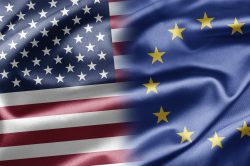The future dynamics of transatlantic relations
The emergence of a multipolar world replacing the previous bipolar world has raised many concerns from political, economic and social elites on whether the EU and the United States should exercise leadership together, work independently or seek new partnerships. TRANSWORLD(opens in new window) (Redefining the transatlantic relationship and its role in shaping global governance) set out to provide a new approach to the understanding of transatlantic relations and their role in the 21st century. A consortium of 13 research centres, universities and a survey company from the EU, the United States and Turkey were involved in the project, which comprised three phases. First, a conceptual framework was elaborated, producing a historical and theoretical overview on transatlantic relations and three potential scenarios for the future: structural drift, functional relationship and enduring partnership. In the first scenario, the EU and the United States will head towards reciprocal estrangement. The second scenario predicts that the EU and the United States will build selective forms of cooperation, while the third supports that they will sustain and revive their longstanding bond. Project partners subsequently examined the transatlantic relations under four distinct policy domains: economy, security, environment, and human rights and democracy. They found that the Transatlantic Trade and Investment Partnership (TTIP) will play an important role in determining the economic transatlantic relationship, while relations in the domains of security and environment tend to fit in the enduring and functional categories, respectively. Concerning democracy and human rights, although both partners have converging interests, their relationship only tends to be a functional one. The project partners also observed the role of the EU-United States partnership in shaping global and regional governance structures, concluding that the transatlantic relationship, while resilient, is struggle to keep the leadership capacity it showed in the aftermath of the end of the Cold War. The project produced a total of 45 papers, the first-ever survey of political, economic and social elites on the state of transatlantic relations and their role in the world, as well as a policy paper – containing an agenda for transatlantic cooperation in shaping governance structures - based on the team's research and on four Delphi exercises involving over a 100 experts from Europe, the US, Turkey, Brazil, China, India and Russia. TRANSWORLD’s main conclusion was that the transatlantic partnership between Europe and the United States remains indispensable in addressing regional and global challenges. They should both be active agents in stronger transatlantic ties and engage other countries, even those that behave like rivals, from a position of strength.







